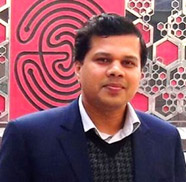China’s Nightmare, America’s Dream: India as the Next Global Power by William H. Avery
The rise of Asia, particularly China and India, is a significant development in the early 21st century. In the last three decades, China has transformed itself from an agricultural economy to a manufacturing economy. While China’s growing economic power has lifted more than 500 million people out of poverty, it has also modernised its defence sector. China is now playing an increasingly assertive role on the world stage. During the same period, India also registered significant progress in the economic and defence sectors. However, it is yet to utilise fully its available resources to protect and promote its national interests beyond its borders, and has been struggling to become a regional power. William H. Avery, a former US diplomat, in his book China’s Nightmare, America’s Dream: India as the Next Global Power, robustly argues that India’s unwillingness to project power beyond its borders, and China’s forceful foreign policy, would lead to a China-dominated Asia. Avery believes that India has the potential to become a global power and can turn the 21st century in its favour if it can embark on the path to world power by refashioning its economic, diplomatic and military policy. Avery argues that the only country capable of limiting China’s influence in Asia is India, if the latter can turn its natural advantages into raw power.








